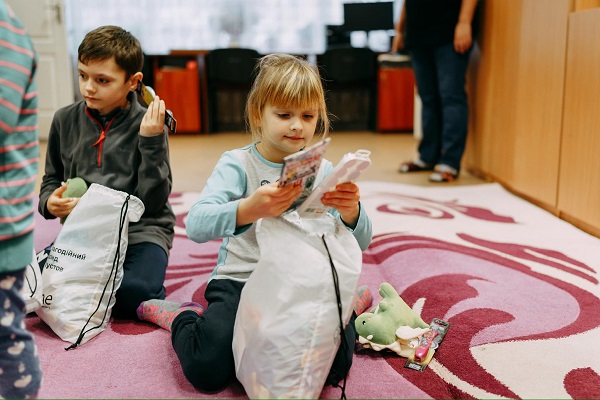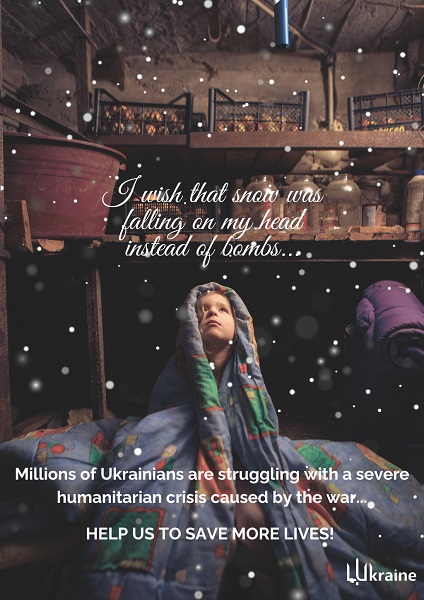 Children receiving LUkraine humanitarian packages;
Credit: LUkraine asbl
Children receiving LUkraine humanitarian packages;
Credit: LUkraine asbl
LUkraine asbl has launched a Christmas appeal for donations for its humanitarian (evacuation and medical) mission in Ukraine.
As the festive season approaches, LUkraine is calling on the generosity of the public to support its humanitarian efforts in support of Ukraine. The Luxembourg-based non-profit organisation (with "public interest" status) noted that this holiday season "carries a different weight" for families in Ukraine who "long for the basics we often take for granted", namely a home, food, water and medication.
LUkraine recalled that the ongoing war has caused "a devastating humanitarian crisis" in Ukraine. In July 2023, the World Health Organization reported more than 1,000 attacks on the Ukrainian healthcare system, many of which targeted hospitals. To address such problems, LUkraine launched its Humanitarian Mission in August 2023, to help people close to the frontline or liberated territories in Ukraine who do not have access to medical and social services. Activities include: providing emergency medical care; the medical evacuation of injured people; offering mobile dental services; evacuating people from dangerous areas near the frontline; accommodating people in shelters; offering humanitarian assistance, psychological support and social workers support.
In the first three months of the project, LUkraine carried out 1,276 medical evacuations, provided dental services to 511 patients and distributed 670 food packages.
Although the Luxembourg Government covers half of the project’s budget (€300,000), LUkraine is seeking financial support to finance the remaining half. To make a donation, visit the non-profit's website: https://ukrainians.lu/donation/
Speaking to Chronicle.lu about the importance of this campaign, LUkraine President Nicolas Zharov said: "This time of the year, everybody wishes for something. The wishes of the Ukrainian people may seem very simple, but they are hard to achieve without global support. Indeed, a drop in donations became so much more visible."
Elaborating on the idea of "war fatigue", not least in the face of other conflicts around the world, he added: "We see how Russian aggression influenced the economic wellbeing of every European. We can also understand that it is hard to live in the shadow of the war for such a long time. However, the price paid by the Ukrainian nation is high. Helping Ukraine should not only be seen as normal philanthropic behaviour but also as an investment in preventing the Russian army from advancing further on European soil. Ukrainian resilience is a key factor in the common efforts to protect not only democracy but also basic human rights on the European continent."
"Slow political decisions, an incredibly long frontline and a lack of understanding of what is really happening on the frontlines among European citizens have resulted in war fatigue syndrome," he continued. "[...] War fatigue is a tool in which Russians definitely invest dozens or even hundreds of millions, combined with a lack of needed equipment for the UAF [Ukraine's armed forces], to create the impression that this war becomes permanent. We start facing the consequences very much now all over the world."









